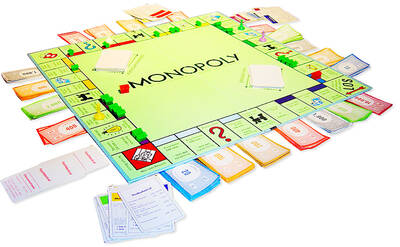Tenderly sadomasochistic and defiant toward politically correct views on gender politics, Chinese director Liu Fendou’s (劉奮鬥) second feature Ocean Flame (一半海水,一半火燄) takes the bad-guy-corrupting-innocent-girl story to the extreme with this tale of a tortured love affair between a ruthless criminal and an innocent waitress.
The film plays out in flashbacks as
ex-con Wang Yao (Liao Fan, 廖凡) barges in on a family after being released from prison. A small-time criminal who ran a prostitution ring with friends before his incarceration, Wang made a comfortable living by blackmailing male customers in hotel-room sex scams.
To the unscrupulous Wang, it is love at first sight with attractive young waitress Li Chuan (Monica Mok, 莫小奇). The two are soon consumed with sex and passion, captivatingly shown in a sex scene on a glittering, empty beach.
Yet as Wang introduces Li to his sordid world and lists her as one of his working girls, the pair’s desperate addiction to love inevitably paves the way for self-destruction.
The third big-screen adaptation of renowned Chinese writer Wang Shuo’s (王朔) novel of the same title (previous versions include the 2001 US film Love the Hard Way starring Adrien Brody), Liu’s violent and erotically charged film creates an enclosed world in which the characters, twisted and bursting with overwrought emotions, swing between unsettling sadomasochism and brutal romanticism, the contrasting feelings suggested by the film’s title.
Chinese actor Liao possesses enough dangerous charisma to help him get away with the sometimes overwritten dialogue and come off as an almost enchanting abuser. Newcomer Mok has been nominated for best leading actress at the upcoming Golden Horse Awards (金馬獎) for her daring and intense performance. The cameos by Hong Kong veteran actors, however, feel superfluous to the narrative.
Exactingly arranged and masterfully crafted in terms of filmmaking, Ocean Flame derives its charm, or shortcoming to some, from a pronounced feel of theatricality and staged emotions that will attract art-house moviegoers with dark characters whose pride and despair lead to self-destruction.

With one week left until election day, the drama is high in the race for the Chinese Nationalist Party (KMT) chair. The race is still potentially wide open between the three frontrunners. The most accurate poll is done by Apollo Survey & Research Co (艾普羅民調公司), which was conducted a week and a half ago with two-thirds of the respondents party members, who are the only ones eligible to vote. For details on the candidates, check the Oct. 4 edition of this column, “A look at the KMT chair candidates” on page 12. The popular frontrunner was 56-year-old Cheng Li-wun (鄭麗文)

“How China Threatens to Force Taiwan Into a Total Blackout” screamed a Wall Street Journal (WSJ) headline last week, yet another of the endless clickbait examples of the energy threat via blockade that doesn’t exist. Since the headline is recycled, I will recycle the rebuttal: once industrial power demand collapses (there’s a blockade so trade is gone, remember?) “a handful of shops and factories could run for months on coal and renewables, as Ko Yun-ling (柯昀伶) and Chao Chia-wei (趙家緯) pointed out in a piece at Taiwan Insight earlier this year.” Sadly, the existence of these facts will not stop the

Oct. 13 to Oct. 19 When ordered to resign from her teaching position in June 1928 due to her husband’s anti-colonial activities, Lin Shih-hao (林氏好) refused to back down. The next day, she still showed up at Tainan Second Preschool, where she was warned that she would be fired if she didn’t comply. Lin continued to ignore the orders and was eventually let go without severance — even losing her pay for that month. Rather than despairing, she found a non-government job and even joined her husband Lu Ping-ting’s (盧丙丁) non-violent resistance and labor rights movements. When the government’s 1931 crackdown

The first Monopoly set I ever owned was the one everyone had — the classic edition with Mr Monopoly on the box. I bought it as a souvenir on holiday in my 30s. Twenty-five years later, I’ve got thousands of boxes stacked away in a warehouse, four Guinness World Records and have made several TV appearances. When Guinness visited my warehouse last year, they spent a whole day counting my collection. By the end, they confirmed I had 4,379 different sets. That was the fourth time I’d broken the record. There are many variants of Monopoly, and countries and businesses are constantly